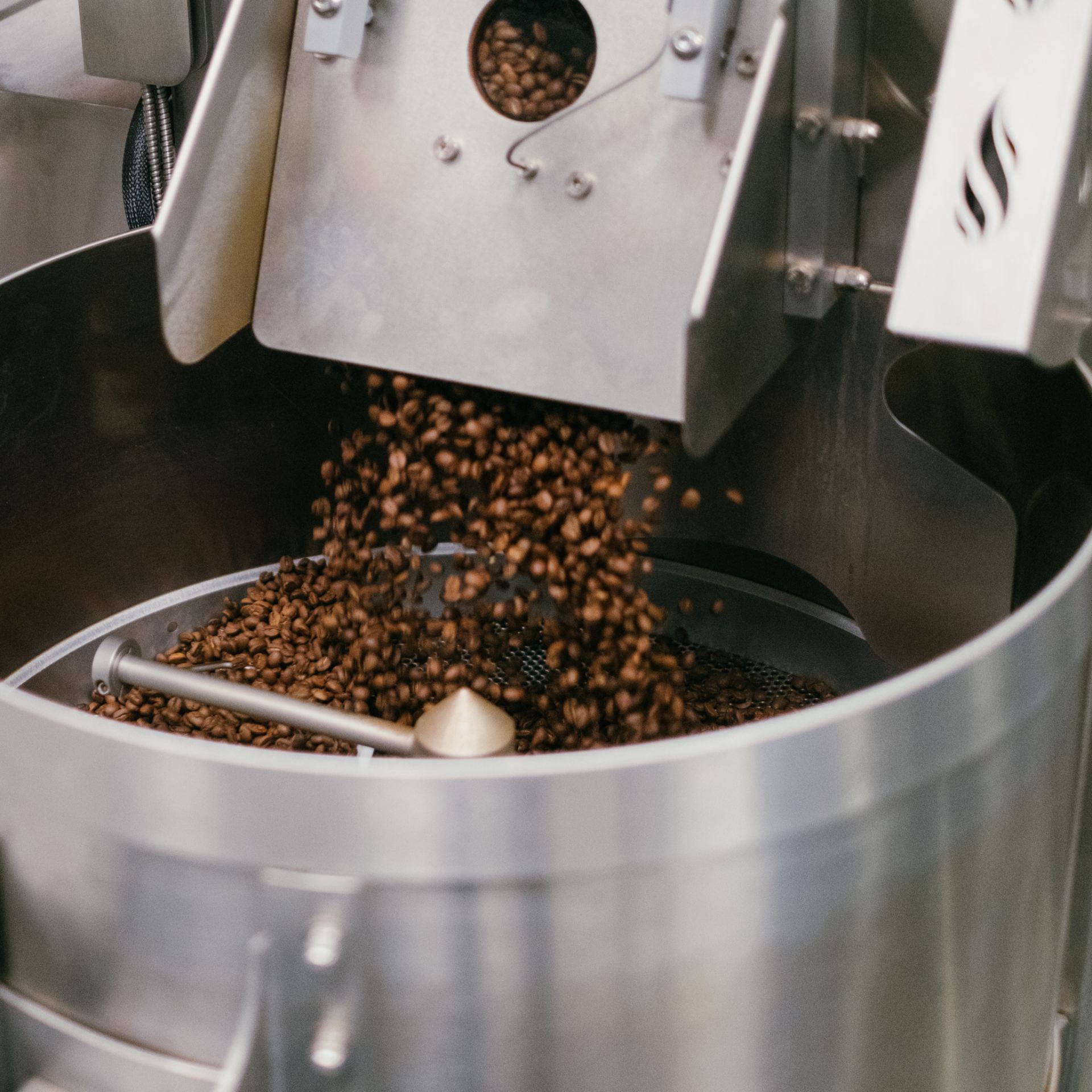
Leticia Hutchins’ four-year-old coffee business has been 500 years in the making.
“My family has been coffee farming in Honduras for five generations,” explains Hutchins (BUS ’16), cofounder of Alma Coffee, a Georgia-based coffee roaster and importer. “For generations that was all my family knew, the farming side of coffee. They never roasted their own coffee to see how it could taste.”
That changed in 2018. Hutchins had a comfortable job as an auditor at KPMG in Chicago, following in the footsteps of her father, Al Lopez, who enjoyed a successful career as a corporate accountant and executive. But something was missing. “I felt like I wasn’t doing my part to make the world a better place,” Hutchins says. “Accounting is super-important and I really respect the industry, but it just wasn’t fulfilling me in the way that I wanted to help others.”
Hutchins frequently visited Finca Terrerito, her family’s coffee farm in the rural mountains near Copan, Honduras, where her father lived until he immigrated to the United States at age 11. She and her husband, Harry, a fellow accountant whom she has known since high school, began to discuss with her father how they could expand the family business and its social impact. They envisioned a farm-to-cup, high-quality, coffee-roasting business managed with socially responsible practices that respect nature and support the community. “We worked on a business plan, and before we knew it, we were ready to take this scary step of quitting our careers to take a leap of faith,” she says. They named the new venture Alma, the Spanish word for “soul.”
Transitioning from bean counter to bean roaster had a steep learning curve, Hutchins admits. She and Harry moved from Chicago to Georgia, where her parents live, to research the coffee industry and roasting technology. After an eight-month search, they found an 8,000-square-foot warehouse in Holly Springs, Ga., to set up Alma’s roasting headquarters.

Today, Alma Coffee has three business segments: roasting coffee sold at restaurants, coffee shops and stores located primarily in the Southern United States; retailing a dozen coffee blends and related merchandise online and at its pop-up café in the roastery; and wholesaling raw coffee beans (aka green coffee) to other roasters around the country.
We worked on a business plan, and before we knew it, we were ready to take this scary step of quitting our careers to take a leap of faith.”
– Leticia Hutchins (BUS ’16)
Hutchins manages Alma’s retail website, marketing and human resources. Her husband oversees their bean-roasting team, sales and logistics, and her father runs Finca Terrerito. She credits her DePaul education in accountancy and management information systems, which included learning computer code, for empowering her success. “Going into the corporate world, I felt very prepared,” she says. “It really helped me build that foundation for starting a business.”
Conducting business sustainably is a core value at Alma Coffee. “The farm is USDA-certified organic, and we use as many coffee byproducts as possible,” Hutchins says, including converting cascara, potentially harmful waste left over from harvesting coffee cherries, into environmentally friendly farm pesticides. Hutchins also invested in a Loring Smart Roast machine, the most fuel-efficient roaster on the market, which produces 80% fewer emissions than conventional roasters.
Hutchins and her family believe in investing in their community, too. The farm provides employment and proper living conditions for 250 coffee pickers in Copan during harvest season. At Christmastime, the family also distributes food baskets and other necessities, including children’s shoes, to nearby families in need. “A lot of times it will be the only pair of shoes that a child will get for a whole year,” she says.

Like many family businesses, Alma has faced economic challenges caused by the COVID-19 pandemic. Hutchins responded by building Alma’s online presence. “I spent three weeks redoing the whole website from top to bottom, every single word and photo, updated our subscription program, and began a paid advertising program, which we had never done before,” she says. “Slowly but surely, we began to see the online business grow. In a weird way COVID was a blessing in disguise that pushed us to do things that we didn’t think were possible for us to do.”
Alma has expanded to encompass a second farm, named Finca La Unica, which Hutchins’ father acquired by trading cattle for land. “He came to me and said, ‘Women are very underappreciated in our industry,’” Hutchins recalls. “We need to lead by example, and I would like you to lead this farm and be the owner of it. I think you need to come down to Honduras and teach our community, which is very machismo-driven, that women can own land and successfully lead a coffee farm.” Since then, Hutchins has been busy choosing the coffee varieties to be grown by Finca La Unica and designing farm operations, which will focus on producing a higher yield of coffee.
As Hutchins applies 21st-century business practices to an old family business, she has remained true to the values that inspired her to co-found Alma Coffee. “Our three key pillars are improving lives, sustainability and extraordinary coffee,” she says, “and that’s what we go back to with every single decision we make, whether it’s an investment, a hiring decision or whether we stay late to get one more person’s order out.”
By Robin Florzak
Below, view a video of Leticia Hutchins leading a tour of Alma Coffee’s roastery.
